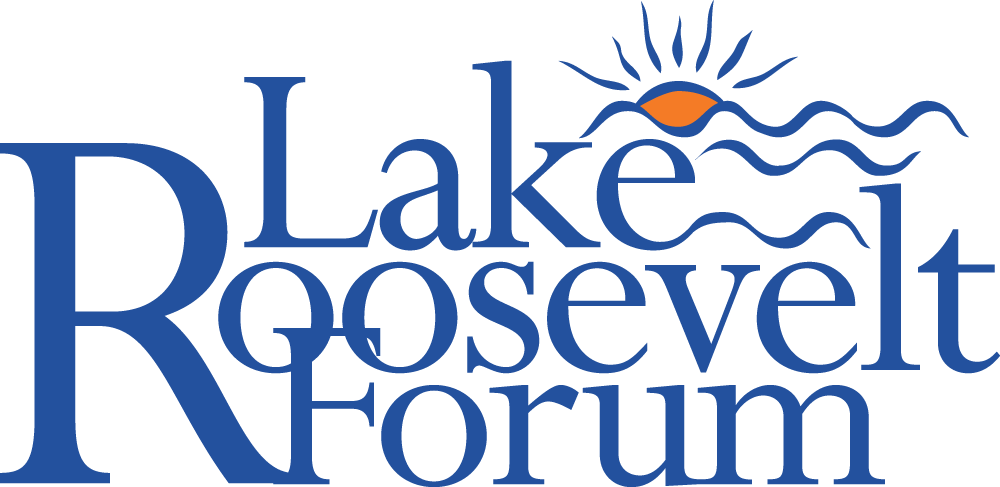If you turn the clock back to 1991, a young woman named Lynne Brougher traveled to Lake Roosevelt for the first time. She’s been a fixture serving our communities for two federal agencies ever since. On August 1, 2020, Lynne retired from the Bureau of Reclamation.
“To know Lynne is to know what people mean when they refer to someone as solid,” Forum Executive Director Andy Dunau said. “I just never had to worry about her being responsive, the quality of information we were receiving, or her sincerity. If she could help, she would.”
Lynne first came to the area as the South District Interpreter for the National Park Service (NPS) at Lake Roosevelt National Recreation Area. By the time she joined Reclamation in 2007, she was NPS’s Chief of Interpretation. For Reclamation, she was their Public Affairs Specialist stationed out of Grand Coulee Dam.
A core perspective for Lynne is “balance.” At both the Reclamation and NPS, she was dedicated to their individual missions. At the same time, however, she was an equally devoted member of the community. She’s found striving to balance federal vs. community perspectives and priorities is as much art as science. The Brougher method is to keep talking and finding ways to work together.
A simple example is lake levels during the Fourth of July weekend. At that time of year, the NOAA Fisheries 2008 Federal Columbia River Power System Biological Opinion required a full lake by the end of June to ensure adequate water supply in the fall and winter. This operation meant high lake levels on the busiest weekend of the year, causing beaches people count on for recreation to be underwater. Finding balance resulted in federal agencies voluntarily keeping lake levels down a couple of feet to expose beaches, then filling the lake after the holiday weekend.
“There will always be tensions,” said Lynne. “There have been times in the past it was pretty stressful. When I first came, NPS had several encroachment issues (people building over the federal property line), and the community wasn’t happy about the removal of private docks.” Looking forward, she recognized that balancing environmental sensitivity and supporting recreation while delivering power, irrigation, and flood control benefits will continue to be challenging, but the key is to understand everyone’s perspectives and work toward common goals.
Another perspective is to appreciate what you have and take advantage of opportunities that come your way. Lynne stated, “I’m a native of Detroit. But dating back to when I spent summers on my grandparent’s farm, I knew I preferred the rural lifestyle. And as I went through college, I discovered how much I enjoyed education and talking to the public and students about the environment, history, and natural resources.”
So, when Lynne applied for a volunteer position with the Student Conservation Association right out of college, her focus was on following her interests not the money. “I got a uniform, travel, housing, and a tiny stipend,” said Lynne. “But what I really got was the doorway to a career I love.”
Lynne laughed when she recalled what she thought when that career took her to Lake Roosevelt. “I was thinking I was headed to the greenery of the Cascades not the high desert.” But she quickly told friends and family she found clover of a different sort. “Where else can you be in a rural area with ocean, cities, trees, rain forests, and mountains all within a 4- to 6-hour drive?”
Thankfully, Lynne and her family will continue to call Wilbur, WA their home. You may see her walking along Lake Roosevelt on one of her favorite beaches during the non-summer months. “It’s quiet, open and expansive. It is not unusual to see a variety of wildlife. Why move? This is as good as it gets,” said Lynne. Or you may see her volunteering. “I look forward to having the time to be of service in my community.”
Carry on Lynne. We look forward to seeing you out and about.

